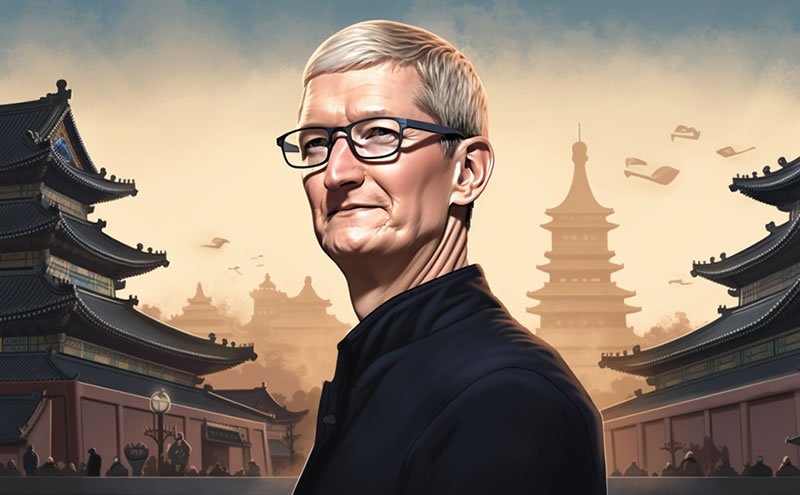As the world watches, Apple (NASDAQ: AAPL) CEO Tim Cook expertly navigates the complex relationship between his company and China. It's like watching a master tightrope walker, carefully balancing the weight of politics and business. In this delicate dance, Cook's skillful management of tariffs and strategic public relations efforts have kept the tech giant in China's good graces, all while moving quickly to diversify its supply chain.
Apple currently generates 20% of its revenue from Greater China, which drops to 15% when excluding Hong Kong. Meanwhile, the US accounts for 42% of Apple's business. With such significant revenue coming from China, Cook's diplomatic prowess is essential for maintaining the company's strong position in the market.
But beneath the surface, Apple is working hard to decrease its dependence on China for production and supply chain. The company's revenue produced in mainland China has been steadily decreasing: from 60% in 2020 to an estimated 45-50% in 2022. In fact, 80% of the 150 new suppliers Apple added in 2021 were from outside of China.
However, completely severing ties with China is not a short-term goal for Apple. The process of diversifying its supply chain is more like gradually untangling a massive ball of yarn. It's important to note that Apple's decline in production reliance on China is at a rate of about 5-10% per year, and it's unlikely that the company will ever reach zero.
One of the critical players in Apple's diversification efforts is Foxconn, a Taiwan-based company that produces about 70% of Apple products in mainland China. Foxconn has expressed its intentions to diversify its production locations, moving to countries like Mexico and the United States. The speed of Apple's supply chain diversification will depend on how quickly Foxconn can make these changes.
In the face of potential economic downturns and high earnings expectations, some investors may wonder if Apple is still a good buy. Although the company will undoubtedly be impacted by economic fluctuations, Apple's strong customer dependence on its products and its strategic diversification efforts should help the tech giant weather the storm.
Apple's revenue is expected to dip by 5% in the March quarter but bounce back with a 3% increase in the June quarter. While a recession could negatively impact the company, once the economy stabilizes, Apple is likely to emerge stronger and more resilient than ever.
In conclusion, Apple's ability to carefully balance its relationship with China, while strategically diversifying its supply chain, demonstrates Tim Cook's masterful leadership. It's a lesson in the art of diplomacy and strategic planning, and one that will likely keep Apple at the forefront of the tech world for years to come.

















Rate this article